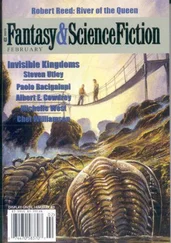“Like us,” Sandra said.
“Right,” Pax said. “You don’t need no stinkin’ hat.”
“We’re the first natural-borns,” Sandra said. “The white-scarf girls practically worship us.”
“And hate us even more,” Rainy said.
He found bowls in the cupboards and rinsed them out. At least the water was on. And the electricity. “Hey,” he said. “Did your mom own this place or rent it?” Somebody had to be paying the utilities. The twins looked more blank than usual. “Never mind.” He doled out the soup, and the girls made him clean and fill a bowl for himself.
After awhile he said, “So these scarf girls, why don’t they like you?”
“I said hate,” Rainy said. Then she shrugged. “They hated Mom, and we sort of inherited it.”
“But why? What did she do to them?”
Sandra looked at Rainy. Rainy said nothing.
“Girls, come on,” Pax said. “I know she left the Co-op for some reason. You told me that she argued with lots of people.”
“Mom had an abortion,” Rainy said.
“Rainy!” Sandra shouted.
“He should’ve already known that,” Rainy said to her.
Pax looked at the table for a time. “You’re right,” he said. “I should have known that.” Jesus, why hadn’t he come back sooner? Why hadn’t he reached out to Jo? He’d left her to raise the girls alone, but he’d told himself she was better off without him. She was the self-assured one, and she had Deke. Hell, she had an entire clade to help her raise the girls and look out for her. He hadn’t suspected for a moment that pregnancies would keep coming, or that her people would turn on her.
“So,” Pax said. “They exiled her.”
“You don’t know how our clade feels about… that,” Rainy said. “The white-scarf girls were outraged. They threatened her. And the doctor too. They burned things on Dr. Fraelich’s lawn. We had to leave.”
“Without Tommy,” Pax pointed out. Did he threaten her too?”
Generations of grandchildren stretching out in an unbroken line , Tommy had said. More real than you are .
“He would never hurt Mom,” Sandra said.
Pax said, “You told me they argued all the time. He must have been furious that she’d had an abortion.”
“Stop saying that word!” Sandra said. “Stop talking about it!” She pushed away from the table and stumbled as she got up. Rainy leaped up to catch her and Sandra shoved her away and ran from the room, blanket trailing like a cape.
Rainy looked at him, her face unreadable, then walked after her sister, calling softly, “Sandra, Sandra, come on now, sweetie…”
A half hour later he knocked softly and went inside the girls’ bedroom. The room was dark, but he made out Sandra’s nightgown-clad shape on the lower bunk, and Rainy sitting on the floor beside her, one hand on her sister’s back.
Pax crouched down. “Already asleep?” he whispered.
“She’s been tired lately,” Rainy said. “It’s the stress.” She sounded so adult.
He nodded. “Say, how would you like to help me with something?”
She followed him out of the room and closed the door carefully behind her. In the kitchen she saw the laptop open on the table, the bumper sticker on the lid upside down now. Christian Fish looked the same flipped or not, but poor Darwin Fish seemed to be on its back with its legs in the air.
“You looked in our backpacks,” Rainy said angrily.
“I picked it up and it was heavy-”
“You looked in our backpacks!”
He opened his mouth, shut it. “You’re right. I shouldn’t have done that.”
Rainy blinked at him. “Well, we did bring it for you.”
“And you haven’t gotten past the password yet,” Pax said.
“No, but the hacker guy already left town, didn’t he?”
“He left me instructions. And tools.” He showed the things that Weygand had left for him: two cans of compressed air, a Phillips screwdriver, a four-gigabyte thumb drive, and a sheet of notebook paper with six numbered steps-and several asterisks.
Rainy looked at the laptop. “Show me.”
Weygand had explained the procedure several times, and Pax was reasonably sure about the details. He handed Rainy the Phillips screwdriver, and she set about opening the bottom panel of the laptop that allowed access to the RAM cards.
Pax read over the instructions again. “Okay, stand by with the compressed air.”
He took out the laptop’s battery, plugged in the power cord, and turned on the laptop. At the log-in screen he typed a series of random characters-anything would do, Weygand had said, because regardless of what was typed the operating system would retrieve the encrypted password off the hard drive, unencrypt it, and hold it in memory so that it could be compared to the typed characters. The clear text password only existed in RAM, never on the hard drive where hacking software could get at it. If the log-in succeeded, or if the computer was turned off, the clear text would be instantly erased.
The key to the whole process, Weygand said, was redefining instantly .
The screen came back with an incorrect password warning. “Ready?” Pax asked. He tilted up the laptop to expose the open compartment on the bottom. “Go.”
Rainy blasted the opening with the compressed air. After ten seconds she switched hands. “It’s cold,” she said.
“That’s the point. Keep going.” Weygand had said that information in RAM didn’t disappear for twenty or thirty milliseconds-and if the RAM card was immediately chilled, the information could persist for up to a minute.
When the can started to sputter he yanked out the power cord and the screen went black. “Here we go,” Pax said. He grabbed the thumb drive, fumbled it into one of the laptop’s USB ports, and plugged in the machine.
The screen remained black.
“What’s supposed to happen?” Rainy asked.
Pax picked up the instruction sheet. “It’s supposed to boot from the USB drive. There’s some kind of hacker operating system that’s supposed to load and go looking through RAM for the password.”
“It’s not even blinking,” Rainy said.
“I can see that.”
How much time had passed, thirty seconds? Maybe the USB port was dead. He looked at the side of the laptop and saw there was another port next to the first.
Another ten seconds passed. Fifteen. He yanked out the thumb drive and unplugged the laptop. Then he put the drive into the second port and plugged it in again.
“Should you have done that?” Rainy said.
“I have no idea.”
The screen flashed, and the Macintosh loading screen appeared. In a few seconds the log-in dialog box appeared.
“Shit.”
“It’s okay, Paxton,” Rainy said, and patted his hand. Her fingers were cold.
“It was probably working in the first port! I should have tested this first. All right, we’re going to try this again.” He picked up the instruction sheet and started reading through the steps yet again.
“Tommy says you’re a junkie,” Rainy said.
He jerked his head up. “What?” He could feel the heat in his cheeks. “That’s crazy, hon. Do you even know what a junkie is?”
“We know about the vintage. We’ve taken care of you while you were on it.”
“I don’t think you understand-”
“We’re worried about you, Paxton. Both of us are. We want you to stop hurting yourself.”
He put down the paper. “I’m working on it,” he said. He smiled. “The problem is, I’m a better person when I take vintage than when I don’t.”
“I don’t believe that.”
“It’s true, hon. I just, uh, feel more.” He picked up the screwdriver, ran his thumb along the metal. “It’s hard to explain, but I get this feeling of, I guess, connection.” He laughed. “Honestly, sometimes I lose track of where I stop and other people begin. Even people I have trouble relating to, on the vintage I can talk to them.” Even dead people, he thought. His conversation with his mother had been better than any he’d had with her while she was living. “I can just… love them.”
Читать дальше









